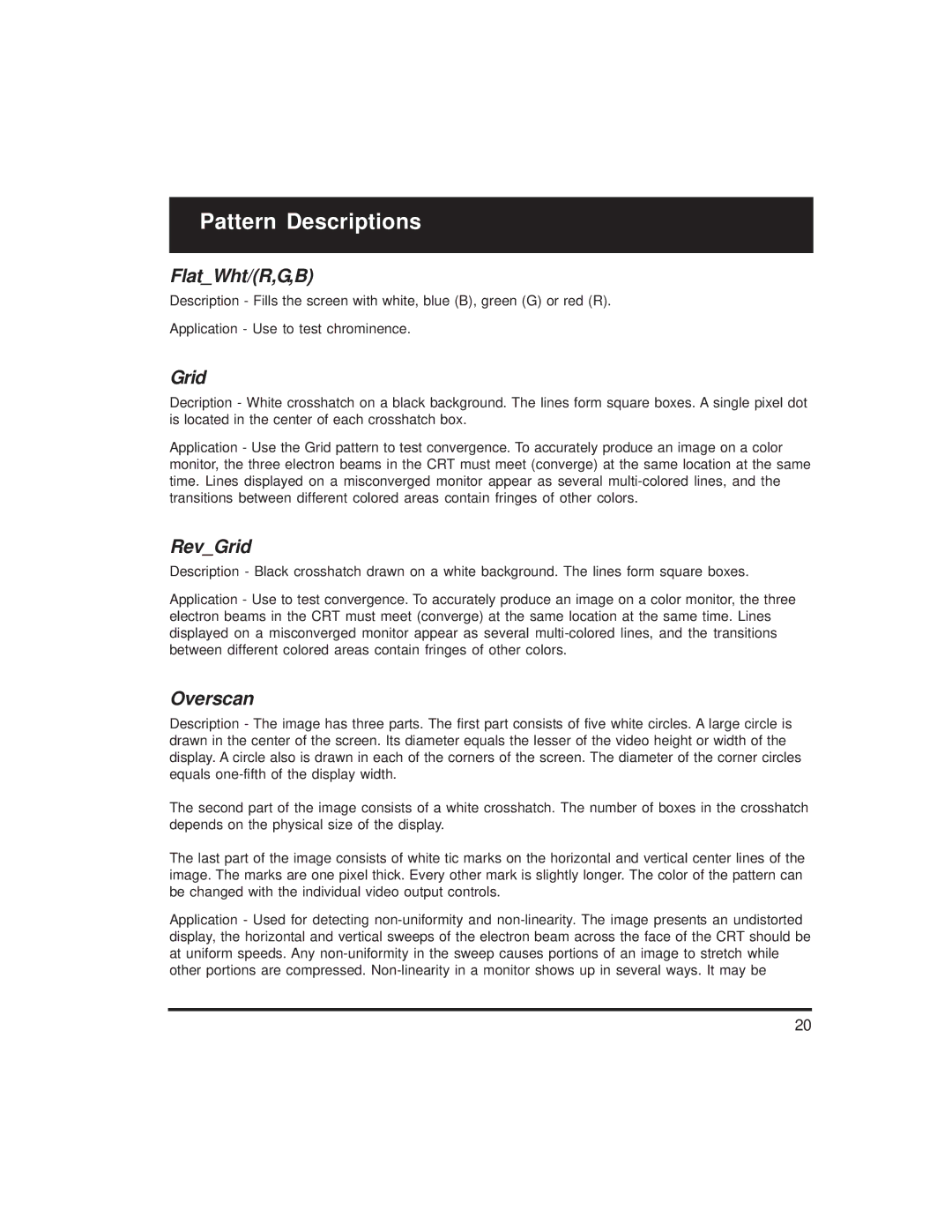
Pattern Descriptions
Flat_Wht/(R,G,B)
Description - Fills the screen with white, blue (B), green (G) or red (R).
Application - Use to test chrominence.
Grid
Decription - White crosshatch on a black background. The lines form square boxes. A single pixel dot is located in the center of each crosshatch box.
Application - Use the Grid pattern to test convergence. To accurately produce an image on a color monitor, the three electron beams in the CRT must meet (converge) at the same location at the same time. Lines displayed on a misconverged monitor appear as several
Rev_Grid
Description - Black crosshatch drawn on a white background. The lines form square boxes.
Application - Use to test convergence. To accurately produce an image on a color monitor, the three electron beams in the CRT must meet (converge) at the same location at the same time. Lines displayed on a misconverged monitor appear as several
Overscan
Description - The image has three parts. The first part consists of five white circles. A large circle is drawn in the center of the screen. Its diameter equals the lesser of the video height or width of the display. A circle also is drawn in each of the corners of the screen. The diameter of the corner circles equals
The second part of the image consists of a white crosshatch. The number of boxes in the crosshatch depends on the physical size of the display.
The last part of the image consists of white tic marks on the horizontal and vertical center lines of the image. The marks are one pixel thick. Every other mark is slightly longer. The color of the pattern can be changed with the individual video output controls.
Application - Used for detecting
20
